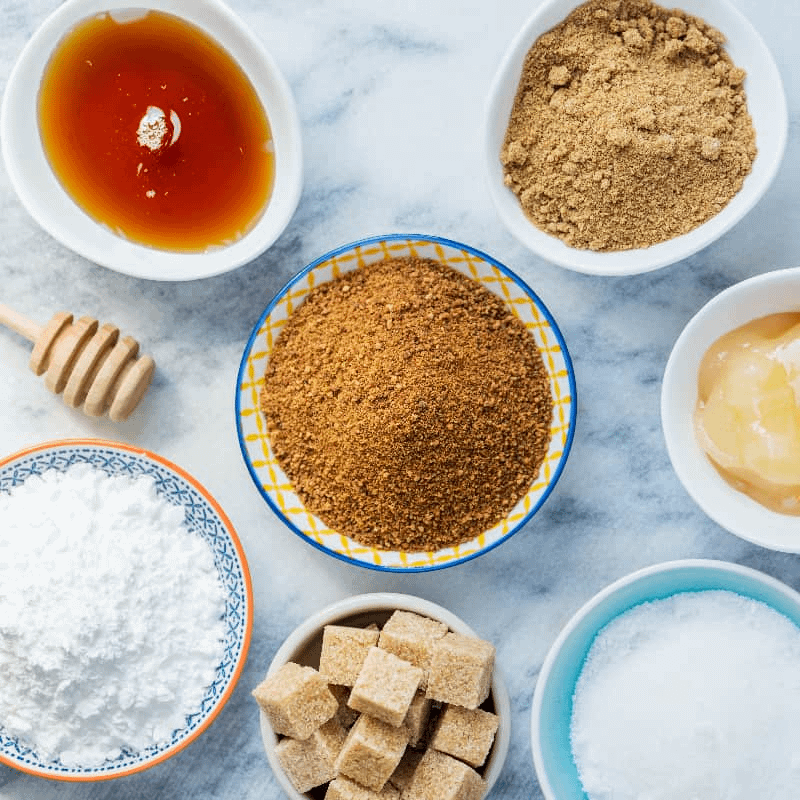
The Sweet Revolution: Exploring the World of Sugar Substitutes
In today’s health-conscious society, the quest for sweetness without the unwanted calories is more relevant than ever. As we look to cut down on sugar intake due to its links with various health issues, the demand for sugar substitutes has surged. But what exactly are these alternatives? How do they affect our health, and which ones should you consider incorporating into your diet? In this article, we’ll delve deep into the world of sugar substitutes, examining their types, benefits, potential drawbacks, and practical uses in everyday life.
Understanding Sugar Substitutes
Sugar substitutes are substances used to replicate the sweet flavor of sugar while often providing fewer calories. They can be natural or artificial, each with unique properties and flavors. Common categories include:
- Natural Sugar Substitutes: These include options like honey, agave nectar, maple syrup, and stevia. While they may offer a more wholesome image, many still significantly impact blood sugar levels.
- Artificial Sweeteners: Popular choices such as aspartame, saccharin, and sucralose fall into this category. Often much sweeter than sugar, they provide low-calorie sweetness but can sometimes cause digestive issues.
- Sugar Alcohols: Xylitol, erythritol, and sorbitol are examples of sugar alcohols. They’re lower in calories than sugar but can cause bloating or gas if consumed in large amounts.
- Novel Sweeteners: Products like monk fruit sweetener are gaining traction for being natural, zero-calorie sweeteners that don’t spike blood sugar levels.
The Benefits of Sugar Substitutes
Sugar substitutes can be beneficial for many individuals, particularly those looking to reduce their sugar intake without sacrificing sweetness. Here are some of the notable advantages:
- Weight Management: By replacing sugar with low-calorie or zero-calorie substitutes, individuals can enjoy desserts and sweetened beverages without adding excess calories, aiding in weight management.
- Blood Sugar Control: For those with diabetes or insulin resistance, certain sugar substitutes like stevia and erythritol can help maintain better blood sugar levels, allowing for a sweeter lifestyle without health risks.
- Dental Health: Many sugar substitutes do not contribute to tooth decay, making them a preferred choice for maintaining oral health. Xylitol, for example, is known for its cavity-fighting properties.
- Diverse Choices: With so many options available, people can find substitutes that suit their taste preferences and dietary needs. Whether it’s a natural sweetener for baking or an artificial one for coffee, there’s something for everyone.
Potential Drawbacks and Considerations
While sugar substitutes offer numerous benefits, they are not without potential downsides. It’s essential to be aware of these considerations when incorporating them into your diet:
- Taste Differences: Not all sugar substitutes taste the same. Some may have a noticeable aftertaste or alter the texture of recipes, which can be unappealing to some consumers.
- Digestive Issues: Sugar alcohols, in particular, can cause gastrointestinal discomfort, including gas and bloating, especially when consumed in large quantities. Moderation is key!
- Health Controversies: Certain artificial sweeteners have been the subject of debate regarding their long-term health effects. While regulatory agencies deem them safe in moderation, it’s wise to stay informed and listen to your body.
- Overconsumption Risk: The ease of incorporating sweeteners can lead to overconsumption of processed foods that contain these substitutes. Always prioritize whole, nutrient-dense foods over heavily processed options.
Practical Uses of Sugar Substitutes in Daily Life
Integrating sugar substitutes into your daily routine can be simple and rewarding. Here are some creative ways to enjoy their benefits:
- Baking: You can replace sugar in recipes with natural substitutes like applesauce or mashed bananas for added moisture and sweetness. When using artificial sweeteners, refer to conversion charts as they tend to be much sweeter than sugar.
- Beverages: Add a sprinkle of stevia or a splash of sugar-free syrup to your morning coffee or tea. For a refreshing twist, try infusing water with herbs and natural sweeteners.
- Snacks and Treats: Experiment with homemade treats, such as protein bars or smoothies, using sugar substitutes to reduce calorie intake without sacrificing flavor.
- Sauces and Condiments: Use sugar substitutes in salad dressings, marinades, or BBQ sauces to maintain sweetness without the calories of sugar.
Conclusion: Sweet Balance for a Healthier Life
Sugar substitutes can be a remarkable tool for those looking to manage their sugar intake while still enjoying sweet flavors. Understanding the variety of options available—from natural sweeteners to artificial ones—and recognizing their respective benefits and drawbacks is crucial. Always consider individual preferences and tolerances; what works for one person might not be suitable for another.
Ultimately, balance is key. Moderation in all things, including the use of sugar substitutes, can lead to a healthier lifestyle. So whether you’re trying to reduce sugar for weight management, health reasons, or simply a lifestyle change, sugar substitutes can add a touch of sweetness without the guilt. Enjoy experimenting with different options and find the perfect balance that suits your palate and your health goals!

















